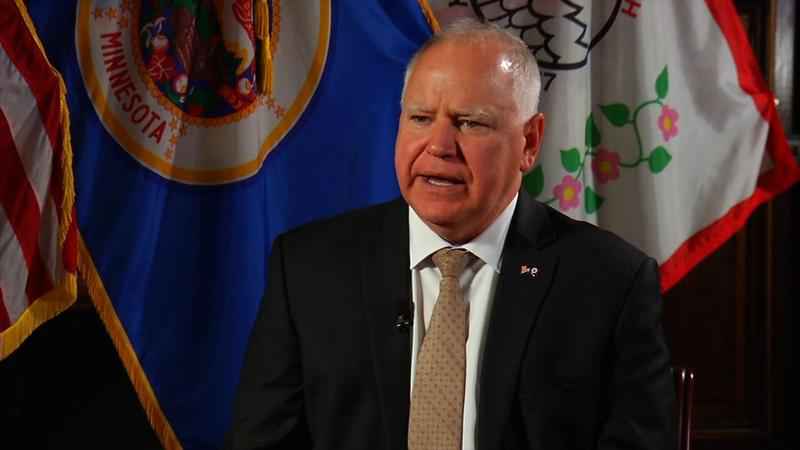At Issue: Gov. Walz reflects on education spending, police accountability and negotiations
[anvplayer video=”5041315″ station=”998122″]
A six-month roller coaster at the Minnesota State Capitol came to a close this week when Gov. Tim Walz signed the last of the state’s spending bills into law, giving the DFL executive, his colleagues in the House and Republicans across the building in the Senate a sense of contentment with their long nights and closed-door dealings.
The result is a $52 billion budget that gives historic spending increases into Minnesota’s education system, provides businesses tax relief from federal loans accrued during the pandemic and a large boost to everything from infrastructure projects, like roads and rail, to child care businesses.
"It’s a good budget for Minnesota," Walz said in a one-on-one interview with 5 EYEWITNESS NEWS. "They’re moral documents. They invest in our children, they invest in transportation."
The long road to a completed budget started with a $1.3 billion deficit in November to a $1.6 billion budget surplus in February. With the added bonus of federal money pouring in, lawmakers and the Walz administration took budget negotiations to nearly the last moment, avoiding any kind of state government shutdown.
Walz and DFLers in control of the Minnesota House stuck with a proposed tax increase on some of the wealthiest Minnesotans. Leaders in the Republican-controlled Senate refused any kind of tax increase – and ultimately won their case. Walz told Tom Hauser on "At Issue" that it was right for the DFLers to move their position.

Minnesota Gov. Tim Walz sits down for an interview with KSTP's Tom Hauser.[KSTP]
"When the situation changed, we pivoted away from that I’m completely comfortable with that," Walz said.
A former educator from Mankato, the governor touted the education spending as one of the major wins for his administration. The increase includes funding for summer school and gives districts the resources they need to help student succeed, according to Walz.
Although he wouldn’t consider it a "loss," the governor told 5 EYEWITNESS NEWS more could have been done in the public safety budget.
"At the end of the day, the bill that passed, while not enough for many, does start to encompass both those things: Public safety – in terms of how to we reduce violent crimes – as well as how do we making sure that everyone feels like they can be safe," Walz said.
Walz has yet to formally announce his candidacy for a second term but made his appeal to voters, ahead of the 2022 election cycle. The former Congressman said even in Minnesota’s divided government – the only one in the nation – leaders from both parties and their views all across the political spectrum were able to get the job done.
"There’s no tax increases," Walz said. "That’s good budgeting."